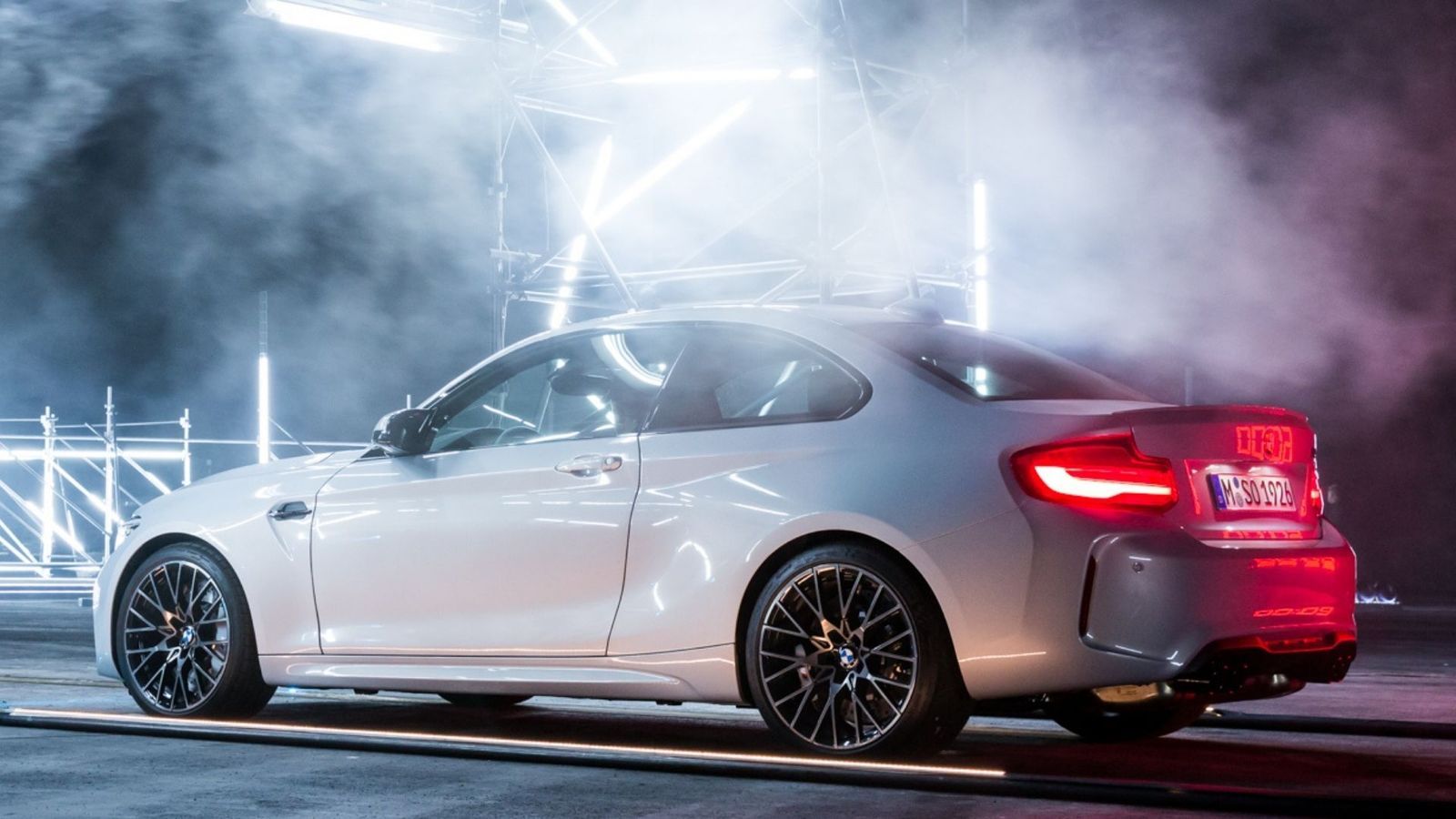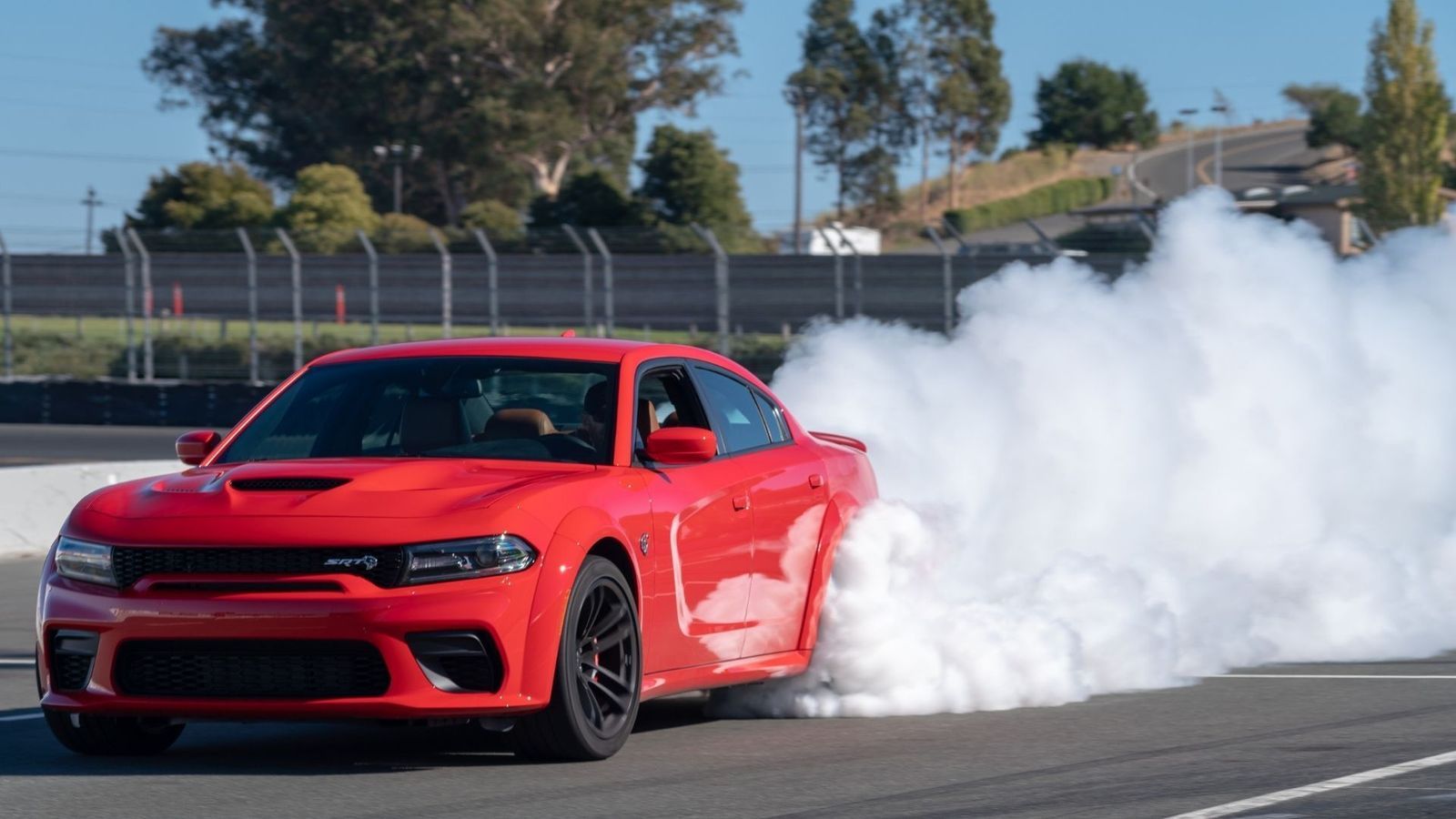Stop making cars so damn sexy!
Toxic masculinity, it’s the number one problem facing the auto industry these days. At least, that seems to be the subtext of an article published by Bloomberg recently, titled “Traffic Crashes Are Getting Worse. Car Ads Are Part Of the Problem.” Yes, they went there, saying that advertisingtrucks can “conquer,” “intimidate,” and “thrill” along with making muscle cars and sports cars look sexy is fueling all kinds of crazy aggression on roads.
Watch the latest Motorious Podcast here.
In the article, the author cites “researchers” who “have found that around half of U.S. car ads feature dangerous driving behavior.” This study was published back in Journal of Public Health in September of 2005. It included 3 independent raters who watched 250 car commercials from the US and Canada. At least 2 of those raters decided 113 of those ads featured an “unsafe driving sequence” and all 3 agreed 63 of the commercials landed in that unsafe category. It’s almost like people watching TV can’t read the text which says “closed course, professional driver.” Also, the average American is too dumb to realize driving like that on public roads in a normal situation isn’t safe or legal. One really has to wonder about the intelligence of some academics. But hey, it sure makes for great fodder when journalists want to attack “dangerous” car commercials.

One of the egregious offenses the author of this Bloomberg article cites was a Twitter post by Dodge from a few months ago. It read: “Fill in the blank. More horsepower means more ___.” Naturally, being that Twitter is a twister version of reality, those who know what’s best for everyone else sprang into action, calling out Dodge for being a murderous automaker. “More horsepower means more dead kids,” read one reply. “More horsepower means more dead pedestrians.” Well, you get the picture.
The author then went on to say this “bragging about horsepower was not a one-off error of judgment.” Has this guy ever heard of LS Fest, WAM Show, RoadKill Nights… wait, nobody tell him about anything or a campaign will be launched to shut down all the fun. After all, horsepower kills and it’s made only for killing, children.

Back in January, a politician in Canada went on a Twitter rant about modified pickup trucks’ “glorification of violence and domination.” It was a fringe view, but here we have Bloomberg jumping on the extremist bandwagon. Anyone who says they’re not looking to take away your muscle car, truck, sports car, hot rod, off-roader, etc. at this point either is willfully not paying attention or is lying.
Then the author of this Bloomberg article goes for the “speed kills” argument which has been looked at in so many angles. To quote Jeremy Clarkson, speeding doesn’t kill you, it’s the suddenly stopping that’s the problem. I’m not for making our public roads raceways, but to say automakers showing off their performance vehicles with smoking tires and neck-snapping acceleration means we’ll all be convinced by the Siren Song to break every traffic law on the books is just idiotic and quite frankly lazy.

What’s even more enraging is the author completely ignores any other possible factors for the rise in traffic fatalities, engaging in the egregious error of linking correlative factors and causation. Just because there are more people dying on public roads today when there are sexy car ads doesn’t mean the commercials are at fault. After all, factors like distracted driving due to cell phones or the overly complicated infotainment touchscreens in cars is a potential contributor to the phenomena. Same goes for relaxed drug laws in different states, more people having moved to crowded cities, assistance technologies giving drivers an erroneous sense of security, decreased traffic enforcement by law enforcement agencies stretched thin – I could go on but you probably get the idea.
For about as long as advertising has existed, there’s been the chicken and the egg argument. Do advertisers simply tap into pre-existing human tendencies, capturing those to drive awareness of brands and product? Or, do nefarious advertisers implant things like toxic masculinity into their hapless audience by showing a roaring, tire-smoking Dodge Challenger on the screen? How you view this will impact whether you think commercials showcasing the performance of cars encourages or even makes people drive recklessly.
The final conclusion of the Bloomberg piece is that there should be heavy regulation on car advertisements, just like there are for tobacco and alcohol. Yep, cars are just as damaging as booze and smokes, so what will be next?

